Big Youth survey shows how young Aussies are changing on kids, marriage, gender, home life
A new survey has revealed shocking insights about young Australians, with more males than females wanting marriage and a surprising number living with disability. See the full results.
National
Don't miss out on the headlines from National. Followed categories will be added to My News.
A third of Australians aged 15 to 24 identify as LGBTQIA+, while more males than females want to get married and have children and a surprising amount say they have a disability.
One in five say they never party, while 40 per cent say they party less than once a month, an exclusive News Corp survey has revealed.
Despite the amount of time young people appear to spend on their phones, more than one in 10 read books every day.
The results of the Big Youth Survey contradicts many stereotypes.
One of the greatest surprises is how many of that age group identify as LGBTQIA+, which stands for lesbian, gay, bisexual, transgender, queer or questioning, intersex, asexual and more.
The figure was 32 per cent, with an additional five per cent preferring not to say.
That number rises to 34 per cent when just looking at the 18 to 24 age group category.
That’s up from 15 per cent in 2020, according to Year13, which undertook this latest survey on behalf of News Corp.
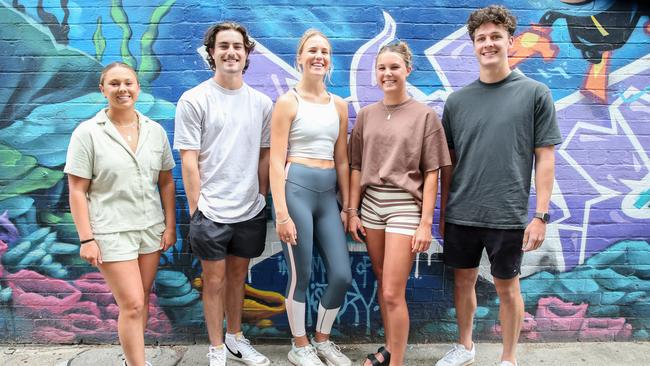
Saxon Phipps, co-founder of Year13, which helps young people transition from school to work or further education, said they consistently find between a quarter and a third of people they survey identify as LGBTQIA+.
He said while the number moves around it bit with each survey, “the general trend over the past few years has been upwards in LGBTQIA+ identification”.
“Gen Zs are more informed about these different sexual orientations and gender identities than previous generations were at the same age who might’ve denied it, kept it secret or just have simply been unaware of it,” Mr Phipps said.
Child psychologist Dr Kimberley O’Brien said she had seen a rise in clients identifying as LGBTQIA+, with many wanting to be referred to as “they or them”.
“We are being more sensitive to these pronouns,” Dr O’Brien, who runs The Quirky Kid Clinic, said.
“I’m not surprised by these numbers. Every fifth report I write is about gender.”
Full-time TikTokers Taz Zammit and Alessia Allfree set up their account @tazandalessia in 2020 as friends, but then fell in love.
Their romance has unfolded online and many of their 527,000 TikTok followers identify as LGBTQIA+.
Most are in the Gen Z age bracket – under 24 – and the Melbourne couple say that cohort is more open to “different ways to love someone”.
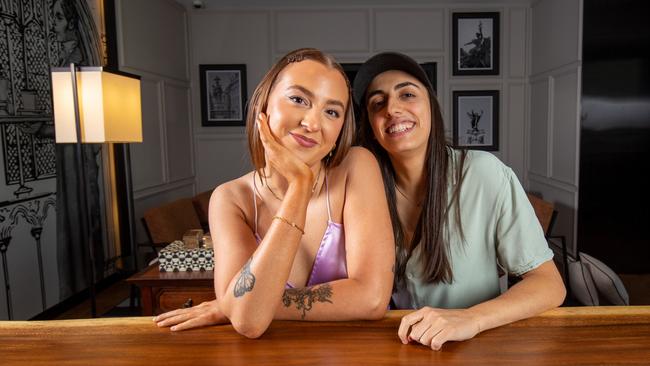
“Our followers are queer and heterosexual,” Ms Allfree, 25, said. “But, in general, the queer community on TikTok is really strong. We’re supported.”
Ms Zammit, 28, said seeing different relationships online from a young age has given people the confidence to “live a life to be most true to them”. They said the queer community grew massively during Covid, due to being exposed to more online content.
The pair hope they are helping too, by normalising the idea of a relationship between two women.
Meanwhile, the idea that girls dream and plan their weddings from when they are little is well and truly over, with just 67 per cent of females saying they want to get married, compared with nearly three quarters of males.
When it comes to kids, the traditional gender stereotypes have reversed, with more males hoping to become a parent one day (67 per cent), compared with 61 per cent of females.
Year13 co-founder Will Stubley said it was surprising, but what the data shows is that it’s young LGBTQIA+ females driving this difference – of the young females who said they don’t want to have children, two thirds of them identify as being LGBTQIA+.
Dr O’Brien said the idea of girls leaving school, getting married and having a child is now old-fashioned while, at the same time, boys see a lot more males playing a fatherly role with their kids in the playground or the beach.
The survey also found that just under 13 per cent of respondents have a disability, compared with the 2021 Census result which reported a lower figure of 9.3 per cent for that age group.
More than six in 10 say they know what career they want to go into.
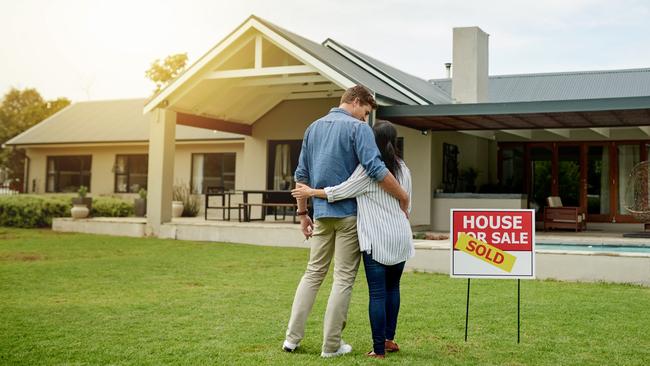
While around three quarters of the 1367 – surveyed across all the states and territories – plan to go to or are already at university.
Meanwhile, more than 18 per cent believe they will never achieve the Australian dream of buying their own property.
Mr Phipps said Year13’s research found teenagers were more optimistic of being able to buy a home, but that dropped off by the time they reached the age of 20, with 29 per cent saying they’ll rent for life.
CHANGE IN PRIORITIES
Females feeling empowered in 2023 could be why they’re no longer focused on marriage and kids.
“The glass ceiling is not that much of a thing anymore, and I think girls want to see how far they can go,” uni student Jessica Saunders, 19, said.
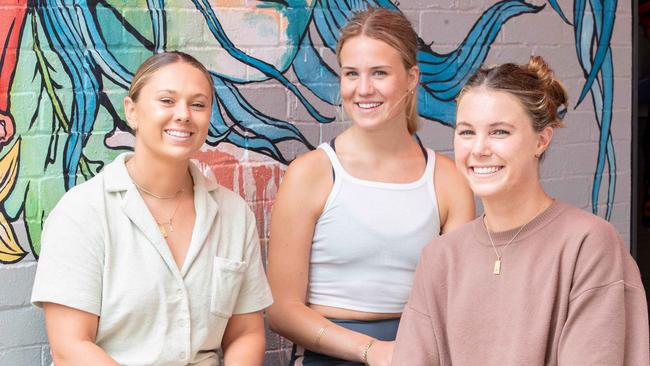
Her friend Piper Harrison, 20, said that perhaps marriage and kids might happen for her one day, but it wasn’t something she placed a lot of importance on right now, saying she was more interested in her sport and career.
Only Sophie Walters, 19, out of the trio said marriage and children was one of her goals.
Meanwhile, pals Luke Harrison and Grant Tucker, both 20, said they wanted families of their own one day.
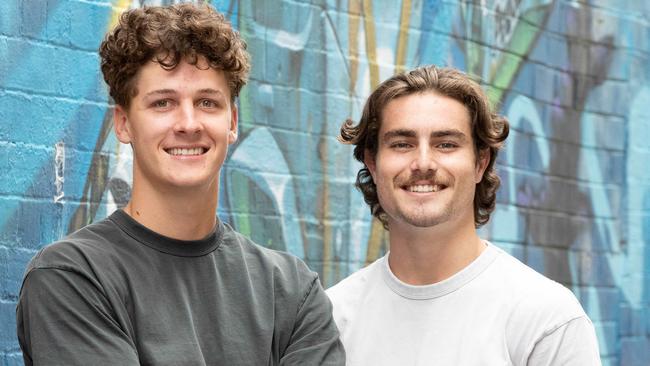
“I’ve always known I wanted kids,” Mr Tucker said. “Guys are really goal driven. I want to get a good job and have a family and provide for them.”
Mr Harrison said girls want to have a career and not just be a housewife anymore.
“My sister is more career minded than me,” he said.
MAKING DREAMS COME TRUE
“I’ll never be able to afford to buy a house,” has become a catchphrase for many young Australians.
But it is possible to make that dream come true, says Billy Drury, 20, who bought his first property at 18, without any financial help from anyone.
In 2021, he purchased a $631,000 one-bed unit, with a study, in one of Sydney’s priciest suburbs, Mosman.
He saved every single cent of his $30,000 deposit himself, as well as another $5000 dollars for extras.
“I am not from a family that comes from money, there was no contribution from my parents,” Mr Drury said.
“I started work in an ice-cream shop when I was 14 and I would find lost balls on the golf course, clean them up and sell them back.”
At the age of 16, he was juggling three part-time jobs and saving around $500 – or 80 per cent of his pay packet – a week.
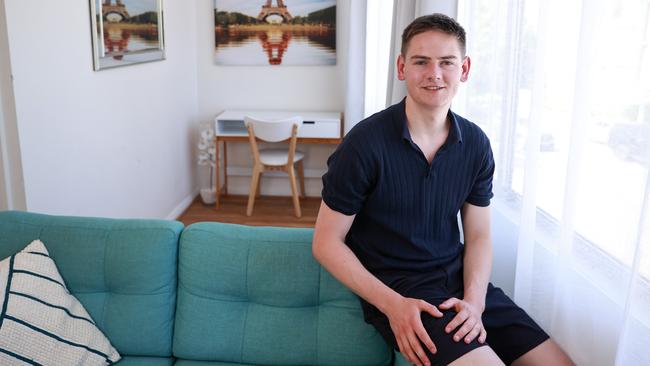
“I was working 15 to 20 hours a week on top of school,” Mr Drury said.
“School was not my thing. I got a 75 ATAR, but I knew I never wanted to go to uni, I was more interested in seeing dollars in the bank.”
He said he knew if he didn’t invest 100 per cent in his studies he had to justify that by buying a house.
He is now working for Novak, a real estate agency, and is saving to buy a second property.
Mr Drury said he lived in the property to start with but is now renting it out and is back home with his parents, doing extra shifts as a lifeguard on top of his full-time job, while he saves.
He said while he could just about afford his mortgage repayments, which have increased from $2300 to $3040 a month, he wants to set himself up first by saving and buying another property instead.
The survey found those who say they will rent forever is higher for those living in NSW and Victoria, 20 per cent and 21 per cent respectively.
Queenslanders are a little bit more optimistic, with 19 per cent saying they will probably rent for life, while those in South Australia are most positive about their chances of getting their foot on the property ladder, with 88 per cent believing they will be able to buy one day.
BIG YOUTH SURVEY TOMORROW
See day two of our three part series tomorrow, which looks at our youth’s health, their alcohol and drug consumption and the trend towards cosmetic surgery.





